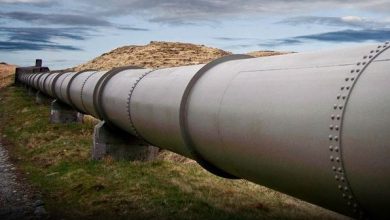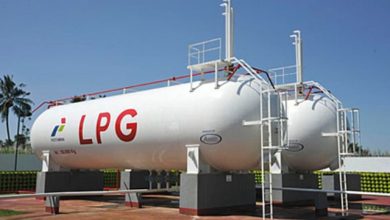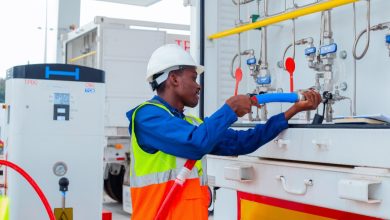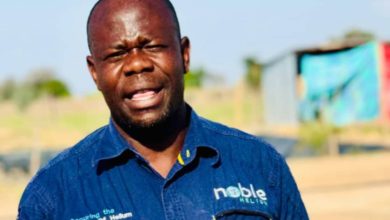Partners empower women in green energy enterprises
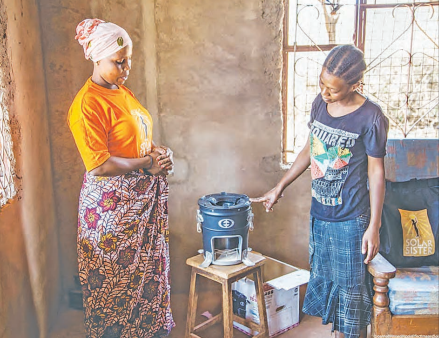
DAR ES SALAAM: MORE than 940 million people in sub-Saharan Africa lack electricity, while more than 700 million depend on hazardous fuels such as firewood and charcoal for cooking.
Responding to these challenges, Tanzania is advancing its clean energy transition in alignment with its national policy and Vision 2025 agenda.
The government has prioritised clean energy development as a policy response to mitigate environmental harm and curb the health impacts of traditional fuel use, particularly in rural households reliant on biomass and kerosene.
The government has heavily invested in renewable sources, particularly solar, hydropower and wind with a focus on rural electrification.
Key initiatives, such as those led by the Rural Energy Agency (REA), have promoted off-grid solar systems and small-scale hydro projects.
These efforts specifically target rural communities that continue to depend on harmful energy sources like kerosene and wood, which pose significant health, environmental and socio-economic challenges.
Women are disproportionately affected, spending considerable time gathering fuel and facing health risks from indoor air pollution, while also lacking access to reliable income-generating opportunities.
Clean energy access is therefore positioned not only as an environmental solution but also as a driver of gender equity and rural development.
By fostering private sector participation and international partnerships, the government is actively encouraging investment in clean energy, recognising the vital role of market-driven solutions in scaling renewable energy access and innovation.
Complementing these efforts, the Puma Energy Foundation partnered with Solar Sister, an organisation that empowers women in sub-Saharan Africa to become clean energy entrepreneurs, helping to expand access while promoting gender-inclusive economic development.
By equipping women to sell solar lamps and other sustainable energy products within their communities, the initiative promotes local economic empowerment while accelerating the adoption of clean, off-grid solutions in underserved areas.
Since 2010, through their award-winning model, Solar Sister has formed a network of over 12,000 Solar Sister Entrepreneurs, serving more than 5.5 million people across sub-Saharan Africa.
Solar Sister offers training in subjects such as marketing, bookkeeping and business planning, along with coaching and access to credit. It also vets the solar energy products to ensure they are durable and of good quality.
In Tanzania, the initiative has positively impacted over 2.3 million people since its inception in 2013.
The Puma Energy Foundation’s partnership with Solar Sister, which began in 2023, initially focused on its Business Booster Programme, which provided training and support to 579 women entrepreneurs in Tanzania.
Digital literacy training and access to technology, such as smartphones, have provided additional tools to help them boost sales, increase their income and give more off-grid households access to clean energy.
In the second phase of the partnership, starting in 2025, Solar Sister aims to recruit and train additional 500 women entrepreneurs in three new regions of Tanzania, provide 200 women with digital business skills and enable them to sell 16,000 solar products, including 2,000 clean cookstoves.
“The goal is not just to sell energy products,” said Cesear Mloka, Solar Sister Tanzania’s Country Director. “It’s to empower women with confidence, financial independence and a respected voice in their households and communities.”
For years, Ms Neema Ally worked as a farm labourer in Songwe, southern Tanzania, earning barely enough to cover her family’s daily needs. She dreamed of farming her own land one day, but lacked the resources to break free from a cycle of poverty.
Her turning point came when she joined Solar Sister. Through training and mentorship, she began her journey as an energy entrepreneur.
With the profits from her solar business, Ms Ally was able to rent five acres of land and grow maize. Today, she no longer works for others; she manages her own farm, provides employment for others in her community and ensures her children attend school.
Her story shows how access to energy and entrepreneurship can unlock pathways to dignity, economic independence and community development.
Through its renewed partnership with the Puma Energy Foundation, Solar Sister aims to reach 85,000 people in Tanzania with renewable and low-carbon energy products, thereby reducing carbon emissions, improving household health and enhancing climate resilience.
But the impact goes beyond the products themselves. By placing women at the centre of the solution, the partnership nurtures entrepreneurship, builds financial independence and strengthens women’s leadership in rural communities.
“We aim to improve livelihoods and make a meaningful difference in people’s lives,” says Laura Fruehwald, Programme Manager at Puma Energy Foundation. “Through this partnership, energy is not only a tool for daily living, but also a catalyst for empowerment and longterm development.”
In Tanzania, Puma Energy complements the Foundation’s efforts by ensuring the availability of affordable and high-quality LPG products and services.
This alignment strengthens the clean cooking agenda by providing households with safe and accessible alternatives to hazardous fuels, thereby further reducing health risks and environmental impact.
ALSO READ: CLEAN COOKING ENERGY: Samia sets bold agenda
By combining the Foundation’s empowerment of women entrepreneurs with Puma Energy Tanzania’s commitment to reliable LPG solutions, the partnership creates a holistic pathway toward sustainable energy access and improved livelihoods.
By empowering women entrepreneurs, this collaboration works to create lasting change by providing access to clean energy, boosting rural economies and building healthier and more resilient communities in Tanzania.


